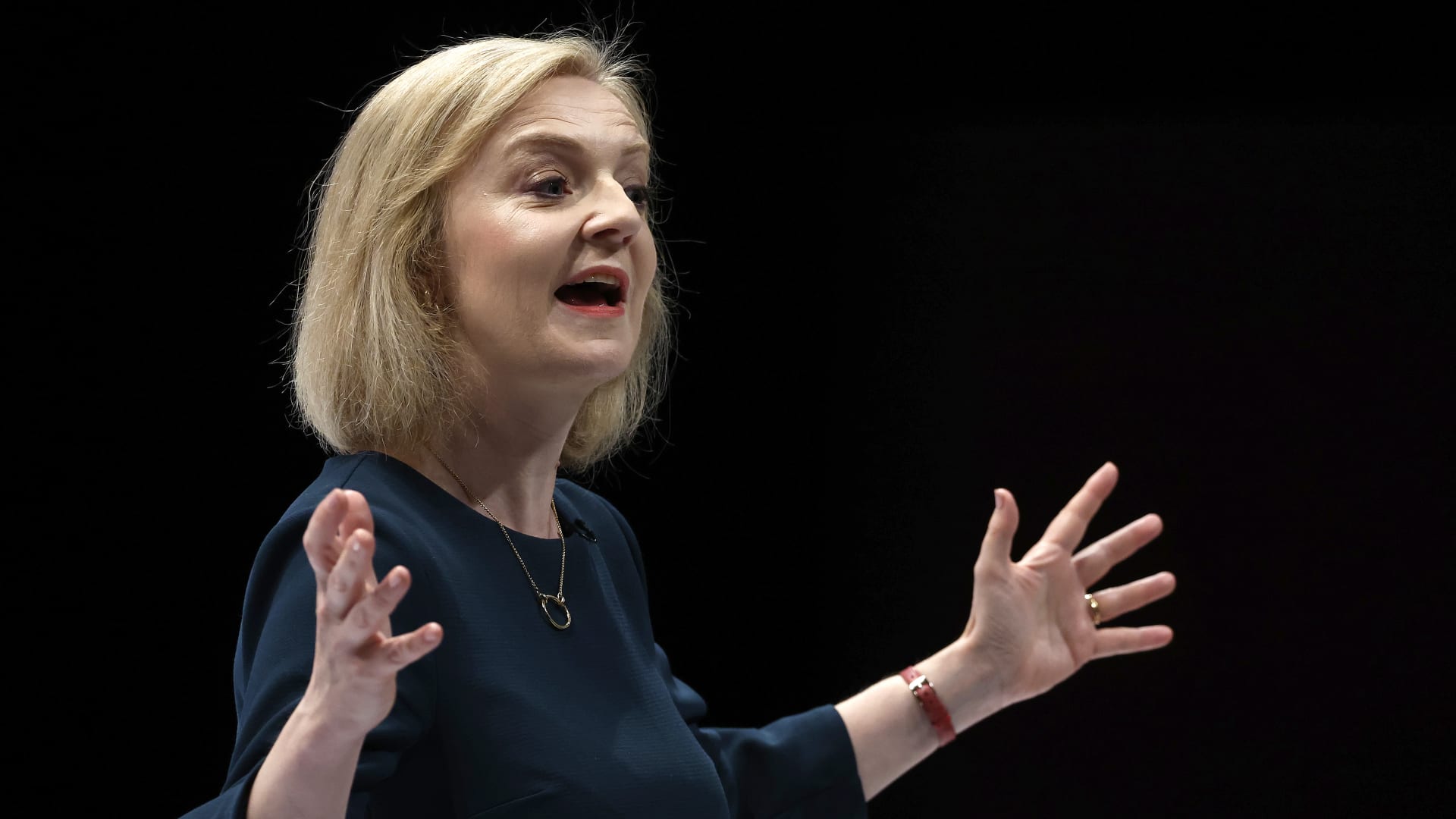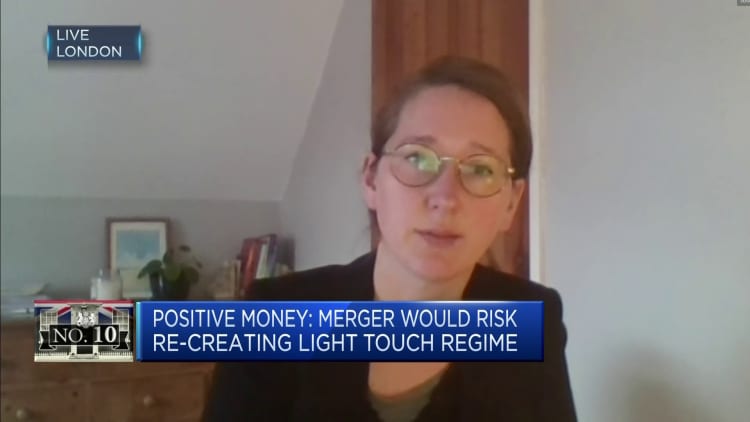
People across the U.K.’s financial sector are wondering whether the new prime minister will change the regulatory landscape.
Jeff J Mitchell / Staff / Getty Images
As Liz Truss becomes Britain’s new prime minister on Tuesday, questions are being raised over her plans for the U.K.’s historic financial district — the City of London — as the country faces a worsening cost-of-living crisis and the ongoing conflict in Ukraine.
The City’s regulators could face a major shake-up under Truss, according to the Financial Times last month. It cited campaign insiders as saying Truss would seek to review and possibly merge London’s three big regulators – the Financial Conduct Authority (FCA), the Prudential Regulation Authority (PRA) and the Payment Services Regulator (PSR).
She has also suggested the Bank of England’s mandate will be up for review during her time as prime minister.
‘Change for change’s sake’
The FCA regulates 50,000 firms in the U.K. to “ensure that our financial markets are honest, competitive and fair,” according to its website. The PRA, meanwhile, oversees the work of around 1,500 financial institutions, to “ensure that the financial services and products that we all rely on can be provided in a safe and sound way.”
Their remits sound similar, but the different organisations were formed when it was decided the Financial Services Authority, which regulated the City between 2001 and 2013, had multiple functions that could be better served through separate organisations.
The main goals of the original authority were good conduct and financial soundness across the sector, according to Matthew Nunan, partner at legal firm Gibson Dunn and former department head at the FCA. He said that dividing it into two was seen as a way to give those aims equal priority.
“The simple question to be answered now is: What would the rejoining of the PRA and the FCA achieve?”, Nunan wrote in an email to CNBC.
“If the answer is the reformation of the old Financial Services Authority, what was the question? Or is it simply change for change’s sake?”
Governments should always “challenge the status quo,” Nunan said, but argued that it’s a question of whether this would actually better serve the “changing needs of a nation.”
“The issue here is that instead of articulating a problem and seeking evidence, the statements made appear to be proposing answers to questions nobody is asking,” he said.
Nunan also highlighted the difference between regulators and politicians, saying that regulators would “never be allowed” to make proposals in the way that Truss has.
“Regulators are required by law to make evidence-based decisions on rule changes [and] require cost benefit analysis before they can be implemented … If that is true for the regulators, why isn’t it true for politicians?” he asked.
‘Light touch regulatory regime’
The “battle” to deregulate the banking sector is like “winding the clock back to pre-2008 global financial crash,” Fran Boait, director of the campaign group Positive Money, told CNBC’s “Squawk Box Europe” last month.

It risks the country falling into the same situation “or a lot worse,” Boait said.
“Liz Truss’ proposal to merge the three key city watchdogs would risk recreating that light touch regulatory regime – the regime we had pre-crash,” she said.
She also highlighted that it has been less than a decade since the organisations were originally founded.
“It wasn’t that long ago that we set up a much bigger regulatory system because there was a consensus that there is so much risk in the system, [that] complexity in the financial sector needs to be properly regulated,” she said.
‘Lack of clarity’
Discussions of a review or merger of any of London’s regulatory bodies remain speculation, as Truss has yet to make any official statements on the subject.
That does cause a “lack of clarity” over the future status of the three regulators, according to Hargreaves Lansdown Analyst Susannah Streeter.
She said that improving financial services for customers should be at the forefront of any regulatory discussions.
“Whether they stay as single or merged entities, it’s really important that the U.K. has dynamic regulators which make the most of Brexit freedoms,” Streeter said in an email to CNBC.
Tackling scams, giving investors more opportunity to invest at IPOs and addressing how information is disclosed to potential investors should all be on the agenda for any proposed changes to the current regulation system, she added.
